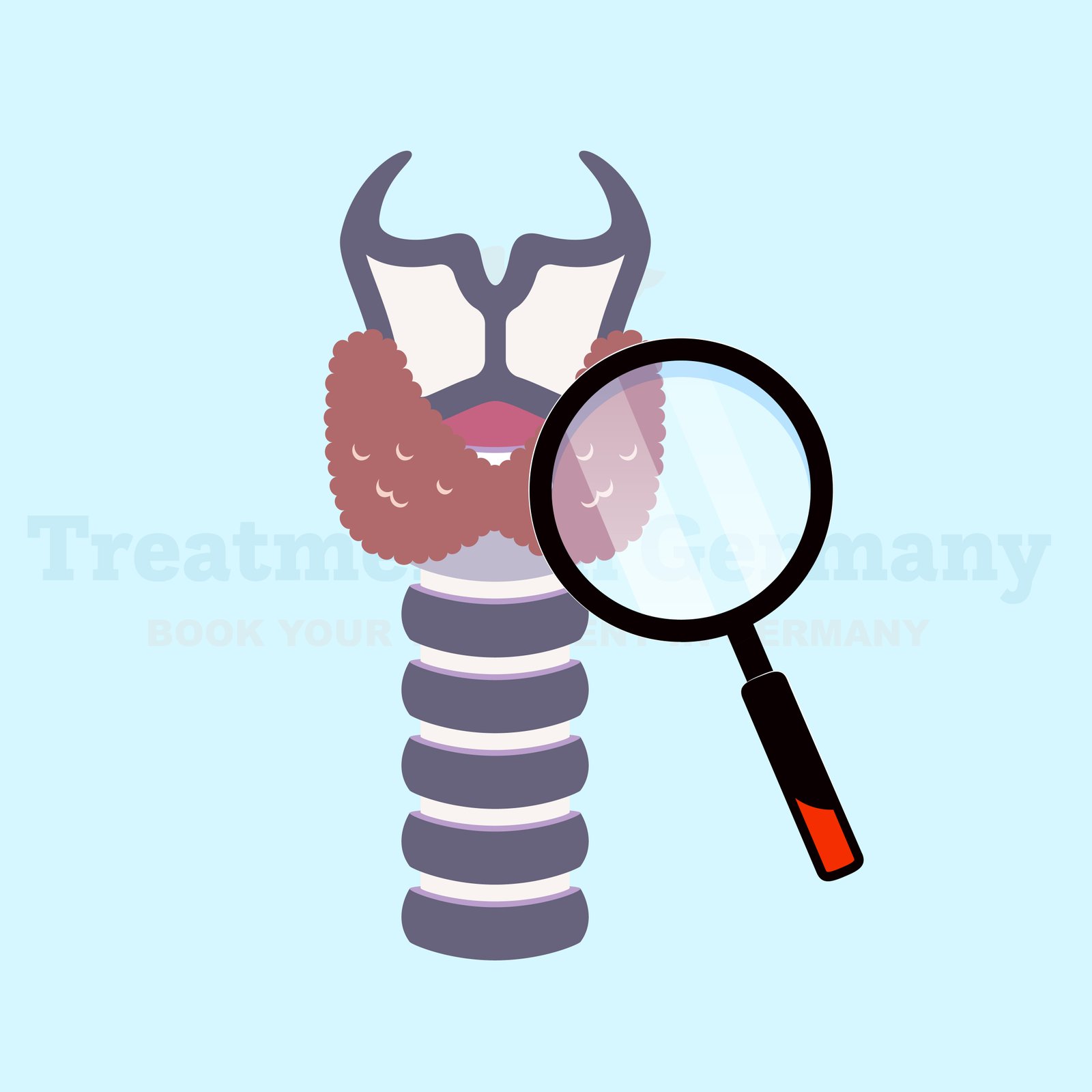Thyroid cancer is not very common but rather curable, mostly in developed healthcare systems such as Germany. Specialized treatments, early detection strategies, and personalized care are some reasons why German oncologists can give the most effective services to international patients.
In this regard, this article peeks into the types of diagnosis and forms of treatment for thyroid cancer, focusing on specific advantages of treatment in Germany.
Thyroid cancer is a neoplasm that starts from the thyroid gland, which is the organ shaped in the neck like a butterfly. The thyroid is of prime importance to manage some of the body's vital functions: heartbeat, metabolism, and blood pressure. A tumor is formed by uncoordinated cell growth in the gland, which may be self limiting or metastasize to other organs.
Types of Thyroid Cancer
Thyroid cancer can manifest in four main ways:
Diagnosis of Thyroid Cancer in Germany
German medical establishments are well equipped diagnostic facilities that enable early detection of thyroid cancer, which helps achieve relatively better results during treatment. For starters, it normally begins with the identification of a thyroid nodule or mass in the neck and is further imaged using ultrasound and computed tomography (CT) scans.
Early Diagnosis of Thyroid Cancer
Early diagnosis has been known to be very crucial in the management of thyroid cancer. The patient usually complains of difficulty in swallowing, hoarseness of voice, or swollen lymph nodes. Patients whose disease might be metastasized could complain of serious symptoms; however, these could include losing weight unintentionally or feeling very tired or weak.
Treatment Institutions for Thyroid Cancer in Germany
Germany's largest centers for the treatment of cancer range from conventional to emerging methodologies. German hospitalswill offer extensive services, including radioiodine therapy, thyroidectomy, and chemotherapy, in addition to interdisciplinary care teams comprising surgeons, oncologists, and radiologists.
Innovative Treatment of Thyroid Cancer
Stage 4 thyroid cancer has to be approached in a multi-disciplinary way. German hospitals are advanced and specialized in complex treatments like radioiodine therapy, brachytherapy, and also levothyroxine hormone replacement after surgery.
Dendritic Cell Therapy
This immunotherapy stimulates the body’s immune system to fight thyroid cancer.
Hyperthermia Therapy
Hyperthermia enhances the effectiveness of other treatments like radiation or chemotherapy.
Targeted Therapy
Targeted therapy uses drugs designed to attack specific genetic mutations in thyroid cancer cells.
New Techniques: Immunotherapy and Targeted Therapy
German hospitals give immunotherapy and targeted therapy, the most recent innovative treatments for cancer that can affect the thyroid as well as other body parts. There exist two major types of cancer treatment: enhancing the body's immune function or destroying particular proteins in cancerous cells that cause the tumor.
Discovering Salivary Gland Cancer along with Thyroid Cancer
Though this is rare, salivary gland cancer can also occur together with thyroid cancers. German doctors are better placed in terms of the difference between these two and see that patients benefit from the most pertinent treatments. Biopsy techniques such as sentinel node biopsy help in the confirmation of the type of cancer and whether it has spread into nearby tissues.
Rehabilitation after Thyroid Cancer Treatment
Following thyroid cancer therapy, rehabilitation entails more than just the disease's treatment. German hospitals offer detailed services with regard to offering rehabilitation services that care for the patient's recovery of quality life.
Such services include thyroid hormone replacement therapy, physical therapy, as well as continuous access to psychological counseling, which cares for patients' emotional conditions.
Psychological Counseling
Emotional well being does play a major role in recovery from the disease. German healthcare facilities always emphasize the importance of mental health post-treatment. There are counseling services available there that help patients cope with the physical and psychological impact of their diagnosis and treatment.
Cost of Thyroid Cancer Treatment in Germany
While fees vary depending on the clinic and the interventions needed, Germany still turns out to be quite a competitive destination for international patients when it comes to high end care. The treatment generally involves consultations with doctors, blood tests to check thyroid status, other images, surgical procedures, and post-surgical care.
In Germany, some interventions like thyroidectomy and radioiodine therapy turn out much cheaper as compared to other Western countries.
Best Thyroid
Cancer Treatment Clinics in Germany
Why Do I Need to Treat Thyroid Cancer in Germany?
Germany is number one in cancer treatment, not only in regards to quality care but also state-of-the-art technology as well as very experienced practitioners in care. Thyroid oncologists in Germany have been trained with mainstream as well as advanced technology this safeguards a patient's chances of getting the best possible outcome.
Significant Gains
of Treatment in Germany
Frequently Asked Questions:
What is the most common thyroid cancer?
The most common of all cancers in this area is papillary carcinoma, which accounts for approximately 80% of the cases. It usually responds well to treatment and has a good prognosis.
How is thyroid cancer diagnosed in Germany?
Diagnosis typically includes some form of ultrasound, blood tests to check the function of the thyroid, and sometimes biopsy procedures that confirm the cancer and determine the stage.
What is the primary treatment provided for thyroid cancer?
The treatment given to such a patient is thyroidectomy and radio iodine therapy, and for other advanced cancers, chemotherapyor radiation therapy has to be administered.
Does this cancer of the thyroid spread to other regions of the body?
Yes, it does, but there will be good evidence that the early diagnosis of this cancer has left various grounds for great improvement in the treatment processes.
What does the cost of treatment of thyroid cancer in Germany involve?
It is always variable but includes surgery,
imaging, and postoperative care. Compared to other nations, it is not as
costly.
👉 Contact us for further information and receive a complimentary consultation.


.webp)
 (1).webp)

.webp)
 (1).webp)


.webp)
 (1).webp)

.webp)
 (1).webp)
